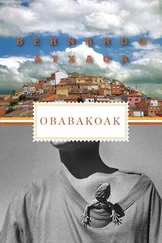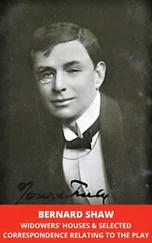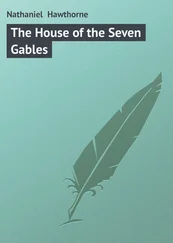The NCO told him that he was the only one there, that the others were with the rubber-workers.
‘All except Donatien, and he’s gone across the river with four askaris ,’ he added.
‘Good. Well, you’d better get cleaning,’ said Van Thiegel.
The NCO saluted before withdrawing.
When Van Thiegel was alone again, the two parts of his mind became embroiled in an argument. One side, the rebellious half, was trying to push him towards Government House. The other officers were away, so there would be no witnesses. The door of the Captain’s office would be open, and he would find the portfolio and the photograph of Christine in the same place as on the previous day. It would be easy enough to pick it up and take it. However, the official side was against this. He shouldn’t steal the photo. Lalande Biran would never forgive him.
‘Christine will be your woman number 200. The photo could be the first step in your plan of action,’ urged the rebellious side.
These words proved decisive. He got up, strode across the square and entered Government House, casually saluting the askari on guard there. He opened the office door quite naturally, as he always did, as if expecting to find the Captain there at his desk, writing letters or poems or reclining on the chaise longue, reading a book. However, all that remained of Lalande Biran was the smell of tobacco impregnating the air.
Van Thiegel opened the portfolio and removed the photograph. Christine Saliat de Meilhan was undoubtedly a very beautiful woman, but only then did it occur to him why she was on the beach. She was probably a swimmer, which would explain her unusually athletic body.
On the chaise longue lay a copy of La Gazette de Léopoldville . He picked it up and slipped the photo in between the pages. The guard would assume that he had simply gone into the office to collect the newspaper.
The official side of his mind brought him up short. There was still time. He could still return the photo to its proper place and his record would remain unblemished. His time in Africa was coming to an end; an impeccable military career of more than twenty years was, fortunately, nearing its conclusion. And he would begin the European stage of his life a rich man. Was it worth risking all that? Besides, why did he need the photograph? Couldn’t he just store the image in his memory?
Alas, the argument put forward by the rebellious side of his mind proved more convincing. Lalande Biran was always losing things. One of Donatien’s main tasks was finding the Captain’s wedding ring, which he left in all kinds of places. Therefore, if the Captain ever did realise that the photograph was missing, he would suspect nothing and blame himself. After all, you never achieved anything if you didn’t take risks. When Christine became his woman number 200, he could tell her about this moment over a candle-lit supper in a romantic restaurant in Paris: ‘I fell so deeply in love with you that I even stole your photograph from Government House.’ What woman could resist a bold lover?
He was tempted to sit down on one of the white benches in the square and take a first quick glance at the photo, but the women in charge of the clean-up were there and he decided, instead, to go to his room. For the first time in his life, he felt something he had never felt with his previous 184 lovers: a desire to be alone. The time had not yet come when he could take Christine to a romantic restaurant or put his arms about her in person, but at least he had the photo.
There were no windows in his bedroom and so he had to light the oil lamp in order to find a place to hide the photo. This wasn’t easy because, apart from the bed, the only furniture was the mahogany bedside table, with a drawer and a compartment underneath in which he stored his bottles. The drawer, however, was filled to overflowing with the letters his mother had written to him over the years.
By the light of the oil lamp, Christine’s body seemed to take on a physical reality. Van Thiegel’s heart filled with emotion. ‘Where are you going to wait for me?’ he asked the photograph. ‘In bed,’ he said, in answer to his own question. That is how it would be in the future. Woman number 200 would give the same answer: ‘In bed.’ He hid the photo under the pillow and went into the office to write a letter to his mother.
‘ Chère maman: j’espère que cette lettre vous trouvera en bonne santé …’ — ‘Dear Mama, I hope this letter finds you in good health …’
Van Thiegel envied Lalande Biran certain abilities. He would have liked to be able to write like him, quickly and without mistakes, whether it was a report for the Force Publique, a letter or a poem. Only then did it occur to him that his lack of writing skills could prove a disadvantage if Christine demanded not just physical strength and vigour but fine phrases, and refused to become his woman number 200 if he denied them to her. There was nothing he could do about that. It was far harder for him to put his ideas down on paper than it was to venture into the jungle.
‘AUJOURD’HUI JE VOUS ÈCRIS POUR VOUS DIRE TROIS CHOSES,’ he wrote in capitals, as if it were a headline. ‘I am writing to you today to tell you three things.’ Then he explained it all in three paragraphs. In the first, he told his mother that he was going to ask for his discharge from the Force Publique and return to Europe, having saved enough money to lead a quieter life. In the second, he explained that he wished to buy a house in Paris, and in the third, that the house should be situated in rue du Pont Vieux or a nearby street. ‘ C’est tout à fait nécessaire, j’aime cette rue ,’ he wrote. ‘It has to be there, because I like that street.’ He could not tell his mother that it wasn’t the street he wanted, but the woman who lived at number 23, Christine Saliat de Meilhan. That was the number that appeared in the return address on the letters she wrote to the Captain: Paris, rue du Pont Vieux 23 .
The schedule of boats that stopped in Yangambi gave him a little thrill of joy. The next to arrive would be the En Avant . He decided that, in the future, that would be his motto, en avant , onward.
For the first time in years, he chose to stay in his bedroom instead of going off on patrol to inspect the work of the rubber-tappers. Shortly afterwards, his spirits slightly roused by the effects of the Martell brandy, he looked again at the photo, then closed his eyes and imagined himself strolling along the rue du Pont Vieux and engineering a chance meeting with Christine. Perhaps she wouldn’t prove to be such a difficult conquest. Lalande Biran was a cold creature and didn’t even seem particularly eager to see his wife again. Besides that, he spent a lot of time engrossed in thought, writing poems or reading books, usually with a gloomy expression on his face — hardly the most amusing of husbands. He, on the other hand, would offer Christine fun and a little adventure. He wasn’t bad-looking, and his blue eyes usually got him a long way, as did his strong, vigorous body. And so it would be again when he returned to Paris.
WHEN THE SECOND clean-up operation began in Yangambi, there was only a week to go before Christmas. A despatch from the AIA informed Lalande Biran that since the journalist Ferdinand Lassalle would be bringing the most up-to-date of cameras with him, it would be best if the older, uglier natives were removed from Yangambi and kept in an enclosure in the jungle until the visit was over.
Helped by the askaris , Van Thiegel and Richardson gathered together about eight hundred rubber-workers and lined them up on the firing range until Lalande Biran arrived. Then the three of them reviewed the workers, separating out those they thought would photograph badly and, at the same time, choosing the best-looking candidates, the healthiest and most handsome of the young men, whose pictures would be guaranteed to catch the eye of magazine editors in Paris, Brussels or Monaco.
Читать дальше












